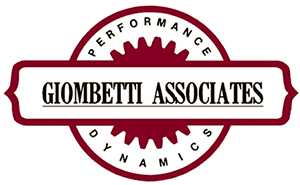By Ira Bryck

Working with family presents a special set of challenges—the experience can either be incredibly rewarding or extremely frustrating. In many cases, it’s a little bit of both. We have an abundance of experience working with family-run businesses of all sizes, so below we share some helpful strategies for successfully working with relatives.
Hire for Fit
If you hire a relative simply because they are family, you are likely setting yourself up for disaster. You don’t want your business to be a safety net for family members who can’t find a job.
It’s a good practice to have established standards for all hires, and hold relatives to those same standards. At a base level, this means:
- They have the necessary skills and/or experience to fill a specific role.
- Their career goals align with the company’s goals.
- They have the character and emotional maturity to fit the company culture.
It can understandably be difficult to be objective about a family member’s qualifications. A service like our Pre-Employment Assessment can provide the unbiased insight you need to make the right decisions for the right reasons.
You want to avoid situations where you have to choose between what’s best for your business and what’s best for your family. This means setting expectations upfront, so no one is unpleasantly surprised when conflict arises.
The guardrails will vary based on the type and size of your business, as well as your goals and priorities. For example, some companies we work with require relatives to be employed elsewhere in the industry for a set period before they are allowed to join the family business. Others require family members to go through the same application process as anyone else, with no guarantee of hire.
Establish Clear Policies
As family business thought leader John Ward preached, “Create policies before the need.” It’s a good use of your time to calmly think through your guiding principles and what policies they suggest, and not make impromptu decisions when things go awry.
A family business can inherently set the stage for conflicts about favoritism, which established policies can offset. Some considerations:
- Hold family members accountable to the same expectations as other employees, for everything from salary and time off to remote work, benefits, dress codes and discipline. Holding family members to different standards (either higher or lower) is a quick way to foster resentment.
- Establish clear reporting relationships. Ensure they make sense business-wise, and recognize problematic areas on the org chart.
- Create clear job descriptions, so everyone knows their roles and responsibilities and avoids overstepping. This can help keep everyone in their lane, and reduce the conflict that comes from lack of clarity.
Beyond the expectations you set for all employees, you’ll need some specifically for family members. Establish a family council comprised of family members in the business as well as those not in the business. This group can explore and manage the many policies and impacts a family must consider when they own a business, as well as when they run a business.
Manage Conflict Proactively
Families in business who commit to effectively managing conflict have the best track records of success and satisfaction. Family businesses that are business-focused and professional have much less conflict than those that use the business to help family members.
That said, every business will have conflicts. However, the impact of conflict in a family business can (and often will) have repercussions on relationships outside of work.
Some strategies:
- When dealing with conflict, be clear and aware of what hat you’re wearing. It helps for people to say, “speaking as an owner” or “speaking as your family member.” You may even disagree with yourself when wearing different hats. That’s healthy to realize.
- When conflict arises, decision-making tools that help you score ideas, or a neutral facilitator to keep things on track, are usually helpful.
- Get perspectives from other (objective) people. Join a peer roundtable, meet with your trusted advisors or try an outside board of advisors. The gold standard is an objective, legal board of directors, but many family businesses are allergic to that.
- Be direct and timely when issues come up. Addressing small issues as they arise will keep them from festering and blowing up into major conflicts.
- Hold each other accountable. If either side is not living up to agreed-upon expectations, bring that out in the open respectfully and professionally.
Ask for Help
While fraught with potential pitfalls, working with family can also be incredibly rewarding. Sometimes, it’s hard to see the forest for the trees, and that’s when asking for outside support can be incredibly valuable, helping your business and your family relationships to grow and prosper.
Our Strategic Collaboration service, for example, is customized for each client and designed to examine specific challenges, identify triggers, resolve differences, build commitment, improve communication and work toward solutions.
We have extensive experience working with family businesses and have a variety of tools and programs to help you operate yours successfully. Reach out if we can help.
